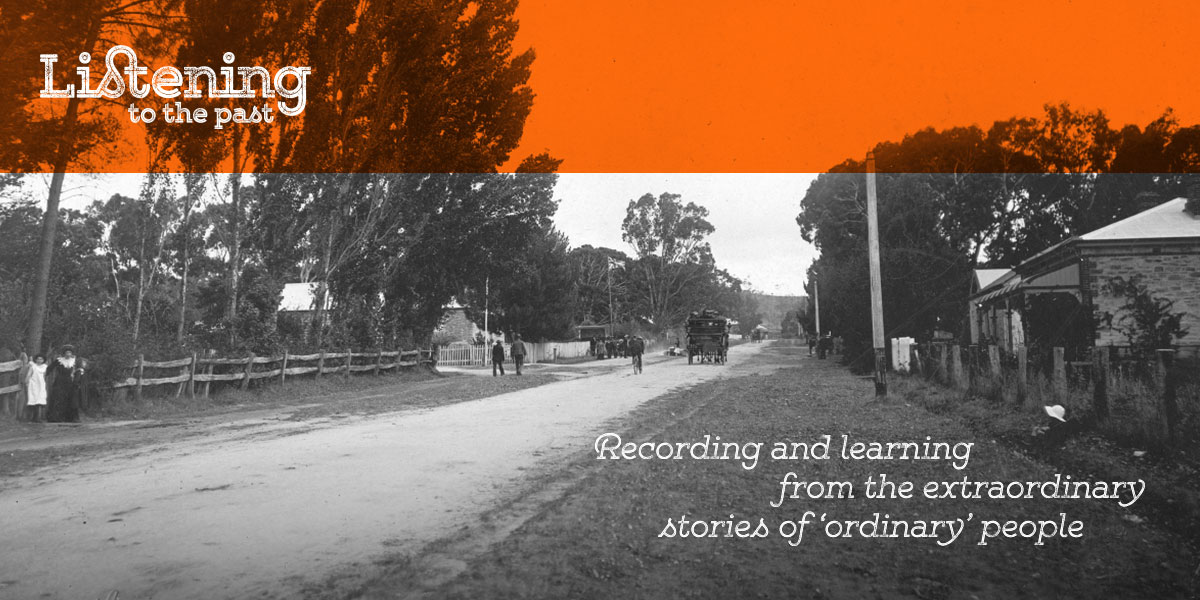Have you ever thought of using oral history recordings in your family or local history research?
Recording your own interviews with relatives is a valuable addition to your research. However, previously recorded interviews can also provide family and local history researchers with a wealth of valuable information that is not available elsewhere. If you are lucky, you may even come across an interview with a long-lost relative in the archives.
Providing context for your research
Mary Stewart (Curator of Oral History at the British Library) and Cynthia Brown (an independent scholar based in Leicester who has extensive experience in the museums and education sector) gave a fascinating presentation at the British Library in which they described the many uses of oral history.

Meadows General Store in the 1940s. Photo courtesy of Lois Watson.
Even if you are unable to find interviews with your relatives in the archives, interviews with non-relatives can provide useful context for your research. For example, interviews can provide detailed information about places and jobs in the past that have since changed dramatically or disappeared altogether. General stores have largely disappeared, but an oral history interviewee provided wonderful detail about the general store in the country town of Meadows, with all the goods and services it provided.
You may find first-hand accounts in oral history interviews of particular events that your relatives experienced, such as the Great Depression (see these examples here and here).
Audio recordings enable you to hear accents and turns of phrase that were once common but have since changed.
Anecdotes about relatives

Picnic lunch in Boord’s Orchard, Hahndorf, 1899. Source: SLSA PRG 1610/11/86
Oral history interviews with non-relatives can also yield snippets of information about your relatives. For example, your relative may have worked with the person being interviewed, or may have been their school teacher or neighbour. The interview may include some stories about them.
You can discover these stories by searching for your relatives’ names in keyword searches in catalogues of oral history interviews.
Experience at the British Library
Accessing oral history interviews raises some interesting ethical issues. Mary and Cynthia give examples in their presentation, which you can hear using the link below.
They presented some case studies from the British Library’s oral history section of how families have reacted when accessing a relative’s audio interview, and how interviews can overlap and add to existing family histories, or sometimes conflict with them. They also discussed the growing accessibility of oral history interviews on the internet, and the opportunities this provides researchers, together with the ethical questions it raises. I highly recommend you listen to the whole podcast for the fascinating insights they provide.
Sources of oral history interviews in Australia
If you are researching family history in Australia, there are a number of repositories of oral history interviews that may provide you with information.
Oral history interviews are available at the National Library of Australia, the state libraries and many local and university libraries. Oral histories are also held by other institutions such as the National Archives of Australia, the Australian War Memorial, the National Film and Sound Archive, the Museum of Australian Democracy at Old Parliament House, the Royal Agricultural and Horticultural Society of South Australia Archives, and the University of South Australia’s Architecture Museum. You may also find oral histories within the archives of hospitals, professional associations, churches, schools, and ethnic groups.
If you have had any success with your family or local history research using oral history interviews, please let us know in the comments below. We’d love to hear about it!
